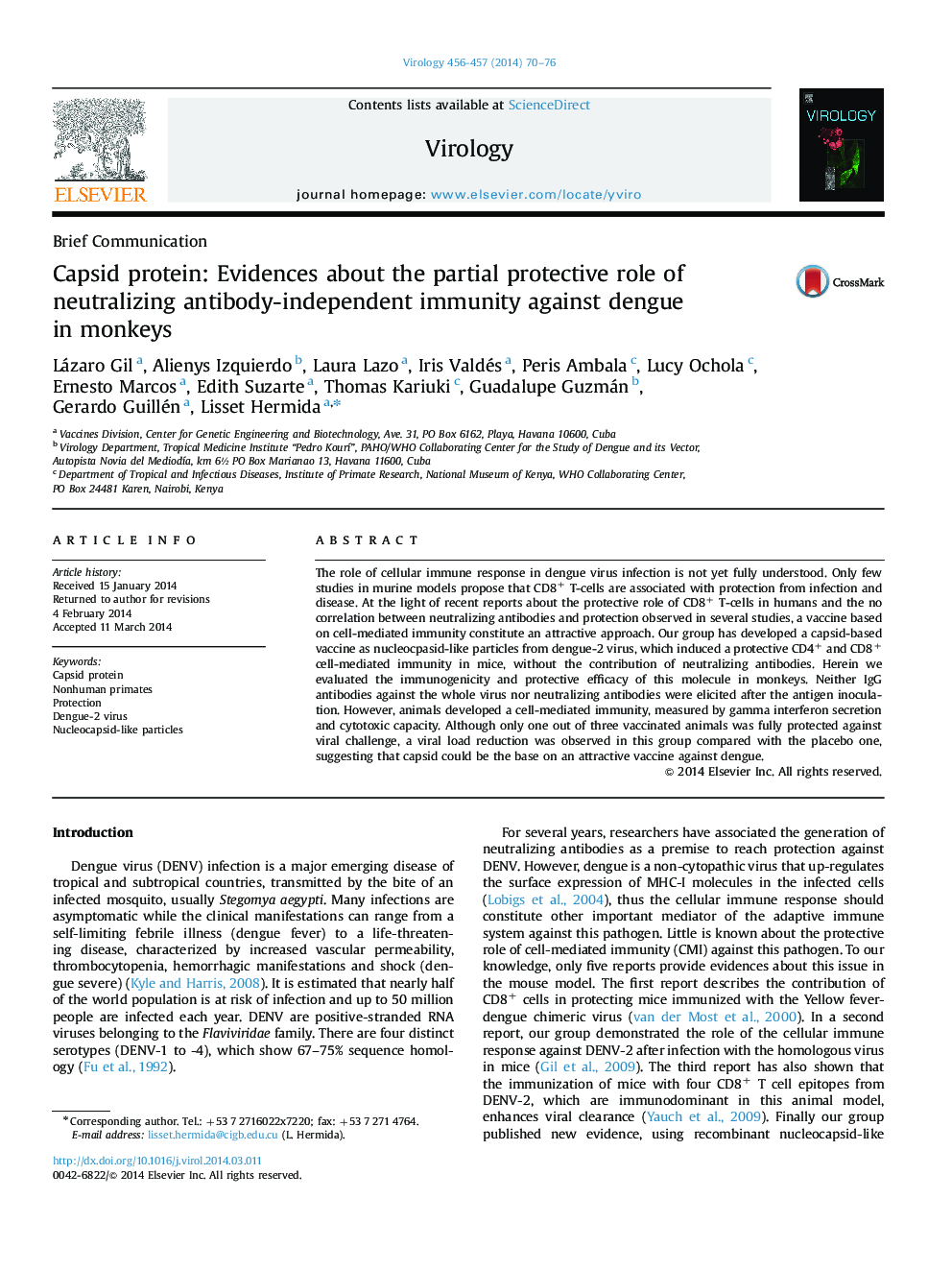| Article ID | Journal | Published Year | Pages | File Type |
|---|---|---|---|---|
| 6140218 | Virology | 2014 | 7 Pages |
Abstract
The role of cellular immune response in dengue virus infection is not yet fully understood. Only few studies in murine models propose that CD8+ T-cells are associated with protection from infection and disease. At the light of recent reports about the protective role of CD8+ T-cells in humans and the no correlation between neutralizing antibodies and protection observed in several studies, a vaccine based on cell-mediated immunity constitute an attractive approach. Our group has developed a capsid-based vaccine as nucleocpasid-like particles from dengue-2 virus, which induced a protective CD4+ and CD8+ cell-mediated immunity in mice, without the contribution of neutralizing antibodies. Herein we evaluated the immunogenicity and protective efficacy of this molecule in monkeys. Neither IgG antibodies against the whole virus nor neutralizing antibodies were elicited after the antigen inoculation. However, animals developed a cell-mediated immunity, measured by gamma interferon secretion and cytotoxic capacity. Although only one out of three vaccinated animals was fully protected against viral challenge, a viral load reduction was observed in this group compared with the placebo one, suggesting that capsid could be the base on an attractive vaccine against dengue.
Related Topics
Life Sciences
Immunology and Microbiology
Virology
Authors
Lázaro Gil, Alienys Izquierdo, Laura Lazo, Iris Valdés, Peris Ambala, Lucy Ochola, Ernesto Marcos, Edith Suzarte, Thomas Kariuki, Guadalupe Guzmán, Gerardo Guillén, Lisset Hermida,
